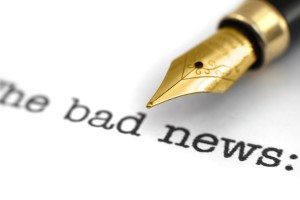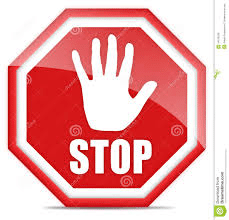 This week at “Back to School Night,” I read with great interest some words of wisdom posted on the wall as part of a set of class “Rules.”
This week at “Back to School Night,” I read with great interest some words of wisdom posted on the wall as part of a set of class “Rules.”
The children agreed to three general principles of self-governance:
Be nice to others.
Don’t use bad words.
Be respectful.
Lawyers also have their own rules of self-governance, codified in the Rules of Professional Conduct. Like the rules posted in my daughter’s school, the ethics rules require lawyers to conduct themselves with courtesy and professionalism.
Former patent attorney Andrew Schroeder could learn a thing or two about civility from the children at my daughter’s school. In 2013, Schroeder received national attention in publications such as Above the Law, which derided him for outlandish, insulting, and derogatory remarks filed in the USPTO.
Schroeder’s lack of professionalism resulted in not just media attention–the Office of Enrollment and Discipline (OED) investigated him for violating the USPTO’s ethics rules. After a relatively lengthy process, the USPTO recently slapped Schroeder with a six-month “time out” for his antics. See In re Andrew Y. Schroeder, D2014-08.
Schroeder’s Misconduct – First Application
In 2011, Schroeder filed Utility Patent Application No. 13/068,530 (“the ’530 application”) on behalf of inventor David Brueske for a Telescoping Tripod Sprinkler Cart. In 2013, the PTO issued a final Office Action rejecting the application based on prior art. In response, Schroeder filed the following “Remarks:”
Are you drunk? No, seriously … are you drinking scotch and whiskey with a side of crack cocaine while you “examine” patent applications? (Heavy emphasis on the quotes). Do you just mail merge rejection letters from your home? Is that what taxpayers are getting in exchange for your services? Have you even read the patent application? I’m curious. Because you either haven’t read the patent application or you are … (I don’t want to say the “R” word) “Special.”
Schroeder’s response further stated:
Since when did the USPTO become a post World War II jobs program? What’s the point in hiring 2,000 additional examiners when 2,000 rubber stamps would suffice just fine? So, tell me something Corky, what would it take for a patent application to be approved? Do we have to write patent applications in crayon? Does a patent application have to come with some sort of pop-up book? Do you have to be a family member or some big law firm who incentivizes you with some other special deal? What does it take Corky? Perhaps you might want to take your job seriously and actually give a sh.t! What’s the point in having to deal with you Special Olympics rejects when we should go straight to Appeals? While you idiots sit around in bathtubs farting and picking your noses, you should know that there are people out here who actually give a sh. t about their careers, their work, and their dreams.
Ironically, Schroeder chastised the patent examiner for not taking his job “seriously” and for not doing his job “right.” The USPTO pulled the “response” as an improper filing. The patent application subsequently went abandoned.
Schroeder’s Misconduct – Second Application
On the same day he filed his “response” to the ‘530 application, Schroeder filed a response in connection with Patent Application No. 13/134,890 (“the ’890 application”) on behalf of Dillon Bruno for an invention entitled Automobile Peddles and Peddle Covers for Brakes, Accelerators and Clutches. The Office rejected all of the pending claims as unpatentable based on prior art.
Once again, Schroeder’s idea of a “response” to the office action was to attack the patent examiner:
Apparently, the current Examiner to which this application has been assigned, does not speak the native language here in the United States of America. Perhaps in Farsi, really ancient Latin, or even the post-Nimoy Vulcan dialect, the word “stud” just so happens to be synonymous with the term “ridge”. But here in this country, the same country to which [sic] Examiner receives his stipend, the word “stud”, and the word “ridge” have two separate and distinct meanings.
In addition, Schroeder compared the examiner to
athletes who participate in the Special Olympics [who] might initially make the same mistake after a wild night of cocaine and strippers in Las Vegas.
Not to be outdone by himself, Schroeder wrote that the examiner was:
included in a free dictionary online called www.USPTOexaminerswhoaremorons.com. In it, sure enough, a picture and name of the current examiner was found. Not surprisingly, enumerated synonyms include the following: “Down’s Syndrome, idiot, lazy, incompetent, blind, stupid, worthless.”
The USPTO pulled the “response” as an improper filing. The patent application subsequently went abandoned.
The Office Action responses went viral at the USPTO. They were also reported by numerous commentators, including Dennis Crouch in Patently-O, who wrote a blog entitled, “Don’t Write This Letter to the Patent Office.”
The OED Director filed a complaint for discipline against Schroeder based upon the two filings. After avoiding personal service of the complaint (whether he was trying to avoid service or not is not clear), Schroeder was finally served by publication. He failed to respond to the complaint. The OED filed a motion for default judgment and ALJ Alexander Fernandez issued a show cause order. Schroeder again failed to respond.
ALJ Fernandez granted the motion and entered a default judgment in favor of the OED Director. The ALJ found that Schrader had engaged in “undignified or discourteous” conduct before the Office, in violation of 37 C.F.R. Section 10.89(c)(5). The ALJ further concluded that Schroeder’s tirades amounted to disreputable or gross misconduct and conduct prejudicial to the administration of justice.
ALJ Fernandez observed that Schroeder’s conduct was far over the line of unprofessional behavior. In fact, the ALJ was so troubled by the patent attorney’s misconduct that he recommended the imposition of a six-month suspension–six times greater than the one-month suspension proposed by the OED Director.
The ALJ lamented that, “[m]odem technology has spawned a generation predisposed to instant gratification and instant expression. In doing so, it has also created a new menace. Today, the most dangerous four-letter word in the English language may very well be ‘send.’” Of course, as the ALJ noted, “the ability to file documents electronically to USPTO does not absolve patent practitioners of their responsibility to consider their words carefully before they press that final button. “
Mark Twain once wrote that, “Anger is an acid that can do more harm to the vessel in which it is stored than to anything on which it is poured.” These words are just as true today. It is too easy to send an email or other electronic communication in the “heat of the moment.”
In an article published in Psychology Today entitled “Avoiding the Angry Email – Why We Should Think Twice Before Firing Off that Rage Filled Message,” the author notes that the “electronic format worsens impulse control problems because its too quick and easy” and recommends treating emails (or, as in this case, electronic filings) like a letter. Simply put, wait before you send it. And have it read by someone else.
The Schroeder opinion reminds us once again that we as lawyers have a duty of civility and professionalism. One can be an effective advocate without behaving like a complete jackass. The practice of law is a profession. As professionals, we are required to maintain a level of respect and decorum in our dealings with each other, tribunals, and third parties.
The rules of civility are actually quite simple. Every school child should know them. Be nice to others. Don’t use bad words. And be respectful.


The way his response is framed depicts Andrew Schroeder as a person who need seriously need anger management classes. As you pointed out he sent both response on the same day makes me speculate that both response were written right after one and another.
This incident earned with nothing but few more monikers.
Thanks for the great post Michael.
-Nitin
Perhaps Mr. Schroeder could use his 6-month hiatus to take anger management classes. While I certainly have felt, but have managed to suppress, the urge to respond to an Office action in a less than civil manner, if the Examiner is providing a poor work product, it’s always better to get the SPE or a TC Director involved than to face discipline and client prejudice by submitting a vitriolic reply.
I recall the publication of Mr. Schroeder’s Remarks several years ago. Thanks for publishing the result of the OED investigation.
I wish Mr. Schroeder control and good luck.
While I abhor the negative and ad hominem nature of the attack on the Examiner, I must admit I did have to chuckle as I read some of them. Whatever his anger management issues, the author clearly has promise as a talented and amusing author. I hope he finds a better outlet for his humor and insights than in the staid and dusty halls of the US PTO!
I can’t help it. I’m still laughing. I’m with you Kevin – they’d adore this author on TV, like the old Simon Cowell or Two and a Half Men.
If he’d clean up the sad stuff (down syndrome -shame on him)and stick to the frustrating bureaucracy we all face, he might find a rewarding career.
Pingback: Email To Bar Counsel To “Go F*#k Yourself!!!” Surefire Way To Attorney Discipline (Even In New Jersey) | McCabe IP Ethics Law